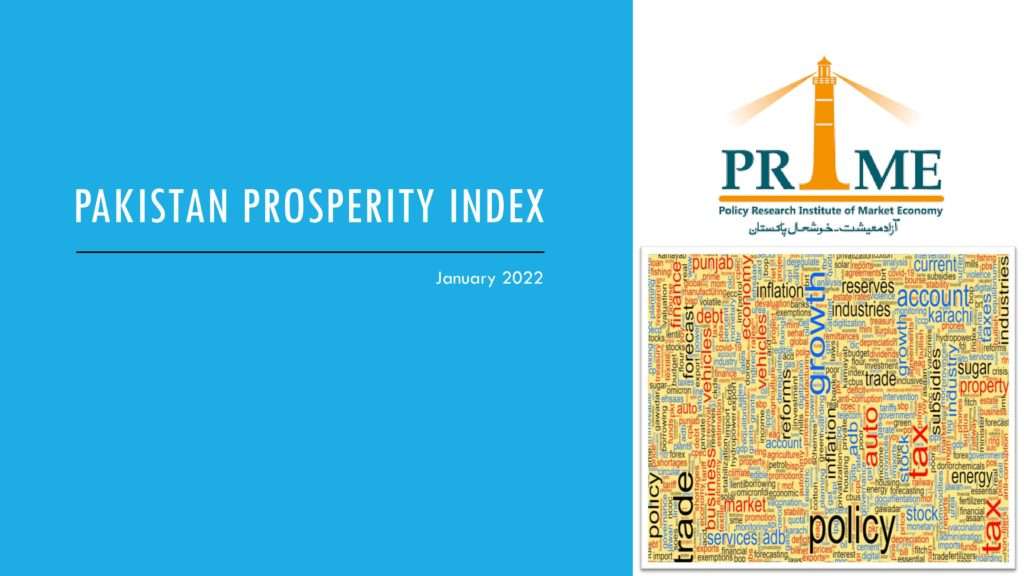Pakistan Prosperity Index – January 2022
Prosperity Index declines due to soaring commodity and petroleum prices

Over December 2020- November 2021, economic prosperity deteriorated by 1.7 points, according to PRIME’s latest report Pakistan Prosperity Index. The decline in overall country’s economic performance can be attributed to continuously soaring inflation, currency devaluation and fall in foreign investment.
Purchasing power continues to decline as the Y-o-Y inflation was reported at 11.5%, while the M-o-M inflation clocked at 3%. The prevalent high levels of inflation are due to soaring supply-demand gap emanating from monetary expansion carried out through commercial banks’ investment in government securities, higher inflow of remittances, falling productivity, and rising international commodity and petroleum prices.
Local currency, the rupee, has remained volatile thus contributing to the uncertainty. In past 12 months, depreciation of rupee has been 8%. Average monthly exchange rate stood at Rs.173 against dollar in November 2021 compared to Rs.171.7 in October 2021.
Inflow of foreign direct investment to the country has seen a plunge due to expeditious spread of COVID around the globe. FDI stood at $220 million in November 2021 compared to $300 million last month.
The trade volume witnessed an increase of Rs.688 billion Y-o-Y and Rs.350 billion M-o-M on account of an increase in domestic and international demand. In M-o-M trade growth, exports experienced an increase of Rs.79 billion while imports increased by Rs.273 billion compared to October 2021.
Large Scale Manufacturing (LSM) output posted a growth of 1.91% M-o-M and 0.3% Y-o-Y. The slowdown in manufacturing activities on yearly basis is due to significant increase in the energy and input prices along with gas load shedding while monthly increase is associated with rising demand.
The private sector borrowing from banks has been on an upward trajectory with Rs.214 billion Y-o-Y and Rs.22 billion M-o-M increase. The borrowing continues to increase despite the hike of 150 basis points in policy rate to 8.75% in November due to higher domestic demand.
The overall economic performance, as measured by PPI, is not encouraging due to mounting challenges. The burgeoning current account deficit on the back of significant increase in the international commodity and energy prices and the resultant hike in the policy rate will contribute to slow down in the economic activities in the country. Inflation remains a big concern, which could be mitigated by addressing the supply side bottlenecks such as lower productivity and interruption in the supply of energy.
Read full report here;
PRIME Institute publishes monthly PPI report with a lag of two months due to availability of data, which comprises trade openness, soundness of rupee, foreign investment, lending to private sector, purchasing power and manufacturing output indices.
For inquiries, please contact afzal@primeinstitute.org or call at 03330588885.
